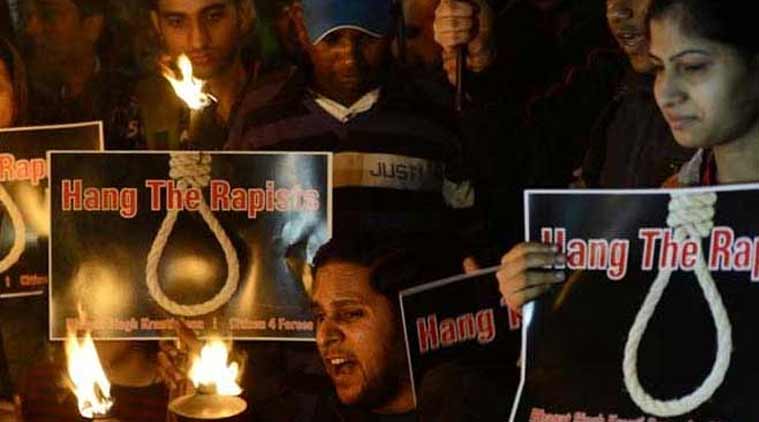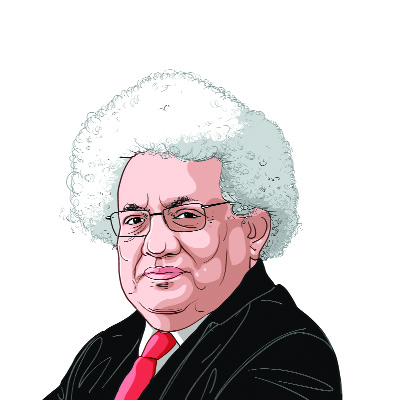Opinion Out of my mind : What are we afraid of?
The world will think India has some secrets to hide which are worse than what is already known.
 The gangrape had sparked protests across the capital. (Archive)
The gangrape had sparked protests across the capital. (Archive)  Would it not be a matter of pride to allow her to go and testify, proving to the world that we believe in truth prevailing over lies and propaganda ?
Would it not be a matter of pride to allow her to go and testify, proving to the world that we believe in truth prevailing over lies and propaganda ?
The national motto is Satyameva Jayate. Gandhiji would have sung to the hymn which asserts ‘And the Truth shall make us free’. And yet, again and again, Indian leaders resort to bans and prohibitions when they suspect that someone may be critical of some aspect of Indian reality.
What is there to fear? If a young Indian activist working with Greenpeace (much of whose money in India comes from Indian donors) wants to go to London and testify before an unofficial committee of MPs about the plight of tribals, why does the government move in a heavy-handed way and prevent her from travelling? What is gained thereby? The world will think India has some secrets to hide which are worse than what is already known. India is an open, liberal society with free media and a guarantee of free speech for its citizens. Does the ruling class think that by banning one activist from travelling, they will improve India’s image? Would it not be a matter of pride to allow her to go and testify, proving to the world that we believe in truth prevailing over lies and propaganda ?
And now, another ham-handed ban on the documentary about the December 16 Delhi gang rape. Did it not happen and did it not shock Indians and, indeed, the world? If one of the convicts gave his version of why he raped the young woman to the filmmaker, why ban the film? Will banning it make the man reform himself? Will it prevent the attitudes of such men from being widely known? Will Indians and the world at large forget about the case and scores of other rapes and molestations and harassment which Indian women experience daily?
There is one common theme in these events. Fear of the foreigner and hence a xenophobia sometimes parading in a Leftist or a patriotic garb as anti-imperialist. Why should we fear or hate the foreigner? A closed totalitarian nation like North Korea or Cuba may suppress the truth, but why should a liberal democracy? Are foreigners only supposed to praise India and come as tourists blind to the realities of daily life?
Deep down in the official attitudes is the hubris that by banning something they will make it disappear. It is the delusion of the powerful that they can rule over minds and hearts of the people, who can be treated as their subjects and who cannot be trusted to think for themselves. Once all the powerful people everywhere held this view. Thanks to the struggle for democracy and human rights over the years, people have seized the right to know the truth for themselves. Indian leaders such as Gandhi and Rabindranath Tagore affirmed the importance of letting in ideas and thoughts from everywhere without the fear of being overwhelmed. We repeat their sayings ‘Where the mind is free’ etc. Do we know what they mean?
When Richard Attenborough was making his film on Gandhi, the officials had many objections to the script. Someone even suggested that no image of Gandhiji be shown, only a flickering flame. Attenborough robustly refused to comply, saying he was not making a film about Tinker Bell! His insistence led to the film Gandhi being an unforgettable classic which introduced Gandhiji to generations born decades after Gandhiji died. Of course, there has never been a film on Nehru as the Family is fearful that it will show his affair with Edwina Mountbatten, which has been his worst-kept secret. People have to be treated like children when the hereditary custodians of power wish to hide their skeletons in their cupboards.
There was even the farce about the film Jinnah. I must be among the handful of people who have seen this excellent film. Yet, it was banned in Pakistan and India! In Pakistan, it was banned for being too truthful about his smoking and drinking and eating ham sandwiches. In India, for portraying Jinnah as a normal human being rather than a devil with horns. Luckily, censorship does not work any more. The documentary on the Delhi gang rape will be shown via the internet. Only ministers think they can ban the truth. We know better.



